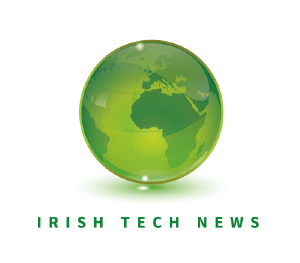Crystel Robbins Rynne, Chief Operating Officer at HR solutions provider HRLocker, outlines Ireland’s journey toward gender equality in STEM and beyond. Highlighting success stories and addressing the ongoing challenges
In recent years, Ireland has emerged as one of the world’s leading technology hubs, with a reputation that continues to soar. Yet, if it is to achieve its aim of becoming Europe’s STEM (Science, Technology, Engineering, and Mathematics) leader by 2026, Ireland, like many other parts of the world, has to improve the gender gap that sees women vastly underrepresented in STEM education and careers.
According to recent research from the Department of Education, women only make up a quarter of those employed in STEM roles across Ireland. A figure that comes as no surprise considering just one in three EU STEM graduates is, as the European Commission reports, female.
But it’s not all doom and gloom— there are reasons to be optimistic.
Female STEM role models in Ireland
Women such as Abigail Ruth Freeman, Director of the Science Foundation Ireland, who has contributed to advancing scientific research and innovation in the country, and Fionola Cliffe, the Chief Operations Officer of Hooke Bio, are not just highly successful professionals, but they’re also preeminent role models for young Irish women with aspirations of a career in STEM fields.
Freeman, Cliffe and their peers epitomise the positive trend of increasing female participation in STEM in Ireland. This progress is not only encouraging but also inspiring, as it paves the way for more girls to follow in their footsteps. The visibility of Freeman and Cliffe, along with other Irish women in STEM, is crucial in empowering more women to pursue leadership roles in previously male-dominated industries.
Another notable STEM role model, Sonya Geelon, the Chief Commercial Officer at Conferma Pay, champions the motto, ‘If you see it, you can be it’. As a passionate advocate for nurturing young up-and-coming talent, Geelon embodies and endorses the progress that continues to be made and instilled in young girls and women.
Ireland’s low gender pay gap
In addition to positive role models, we can be proud that, according to Eurostat, Ireland’s gender pay gap is among the lowest in the European Union. Standing recently at 9.9 per cent, it is almost three percentage points below the regional average and has been falling since 2018.
The gender pay gap doesn’t represent illegal pay discrimination but is a measure of the difference between men’s and women’s average pay across an entire organisation. A high figure indicates a lower proportion of women in higher-paid leadership positions or more women at the lower end of the pay scale.
A relatively low gender pay gap is definitely a positive step in the right direction. Whilst there is undoubtedly still a long way to go here to achieve full gender equality in the workplace, this is a reassuring sign for the future.
Increasing levels of participation
The rise of women and girls studying STEM subjects and entering STEM careers must also be acknowledged and celebrated. In their 2023 Survey of Female Students’ Attitudes to STEM, I Wish, an Irish volunteer-led community committed to showcasing the power of Science, Technology, Engineering and Maths to female secondary school students, reports a rise in the percentage of females studying a STEM discipline undergraduate programme from 29 per cent in 2014 to 36 per cent in 2022.
The percentage of those studying ICTs rose from 15% to 23% over the same period. This is particularly heartening, considering the statistics cover the COVID-19 pandemic, when other industries slowed and saw less uptake. Other standout statistics include the percentage of female uptake of undergraduate courses in:
- Biology—68 per cent
- Biochemistry—65 per cent
- Food Processing—64 per cent
- Environmental Sciences—53%
- ICT—51 per cent
In response to the I Wish 2023 Survey, the team notes that over the past ten years since its inception, they have experienced significant positive change as more women and girls participate in STEM careers and subjects, including increased uptake year-on-year in STEM courses.
Arguably, this is a reflection of the innovative programmes that encourage women and girls into STEM. One such innovation, the 180 Days to Make a Difference mentorship scheme from Deloitte & I Wish, underscores the commitment to empowering the next generation of female leaders. Other examples include the BT Young Scientist & Technology Exhibition, Dream Space at Microsoft Ireland, and ESB Science Blast.
Ways to inspire and include girls in STEM
I Wish reports that 84 per cent of the girls they surveyed in 2023 said they wish to know more about STEM. It’s encouraging to know that there is a demand for knowledge. Still, it also suggests that we need to do more in schools to educate and encourage girls into STEM careers and emphasise the strong opportunities that flow from the flourishing STEM sector.
Underlining the importance of better education is the staggering proportion (66%) of girls who told I Wish they saw a lack of information as a barrier to pursuing a career in STEM. As depressing as this statistic is, it also presents a potential opportunity for STEM businesses in Ireland to bridge the gap.
By reaching out to local schools and helping educate and inspire young girls about pursuing a career in STEM and the correct pathways to take to achieve this, Irish business leaders can liaise and engage directly and, in so doing, open doors for more women to move into jobs in STEM spaces.
One effective way to inspire young girls to pursue a career in STEM is getting female employees to share their experiences with schoolchildren. This not only educates young girls on the pathways to a career in STEM but also provides a source of real-world inspiration. It also addresses a significant hurdle for many teenage girls, who often cite a lack of female role models as a barrier to their pursuing higher education and careers in STEM.
Positive recruitment practices and working policies are powerful tools that Irish businesses can use to drive impactful change. By ensuring supportive networks are firmly in place to attract and retain female staff and providing accommodative work arrangements, businesses can empower women to thrive in STEM. Flexible working patterns and hybrid or complete home-working options, in particular, help women progress their careers when returning from maternity leave or managing parental responsibilities.
Facilitating networking opportunities for women in STEM is another invaluable contribution employers can make to improving the gender balance. By signing businesses up for conferences, seminars, and skills workshops and ensuring female staff members have the opportunity to attend such events, workplaces better encourage and enable meaningful peer-to-peer interactions and support systems.
As Dr Katriona O’Sullivan highlighted ahead of last year’s annual Women in STEM Summit in Dublin, such gatherings are important because they allow diverse voices to be heard, spotlight the challenges that remain in the system, and allow women to come together to problem-solve and think about exciting solutions for the future.
Gender equality in STEM and the positive impacts at play
It’s well documented that embracing diversity is not just the right thing to do, but it’s also good for business. In March 2023, the advisory firm Linstock reported that boards with better gender diversity offer more effective oversight. Linstock’s findings echo McKinsey’s well-known ‘Why Diversity Matters’ report, which showed a 15 per cent increase in financial returns for organisations with high diversity levels.
With this in mind, we must continue to drive positive change and make a proactive commitment to supporting gender equality in STEM. After all, having more women in STEM and leadership roles is not only great for business but it’s also good for the industry, society, and the economy.
For more information and fascinating insights, you can listen to my recent podcast interview with I Wish co-founder Caroline O’Driscoll by visiting https://www.hrlocker.com/podcasts/advancing-women-in-leadership/
See more stories here.
More about Irish Tech News
Irish Tech News are Ireland’s No. 1 Online Tech Publication and often Ireland’s No.1 Tech Podcast too.
You can find hundreds of fantastic previous episodes and subscribe using whatever platform you like via our Anchor.fm page here: https://anchor.fm/irish-tech-news
If you’d like to be featured in an upcoming Podcast email us at [email protected] now to discuss.
Irish Tech News have a range of services available to help promote your business. Why not drop us a line at [email protected] now to find out more about how we can help you reach our audience.
You can also find and follow us on Twitter, LinkedIn, Facebook, Instagram, TikTok and Snapchat.

